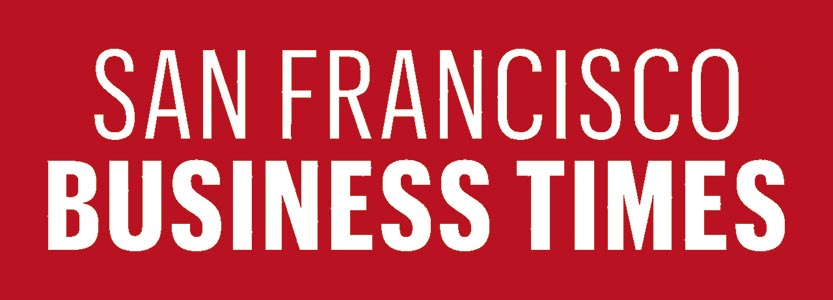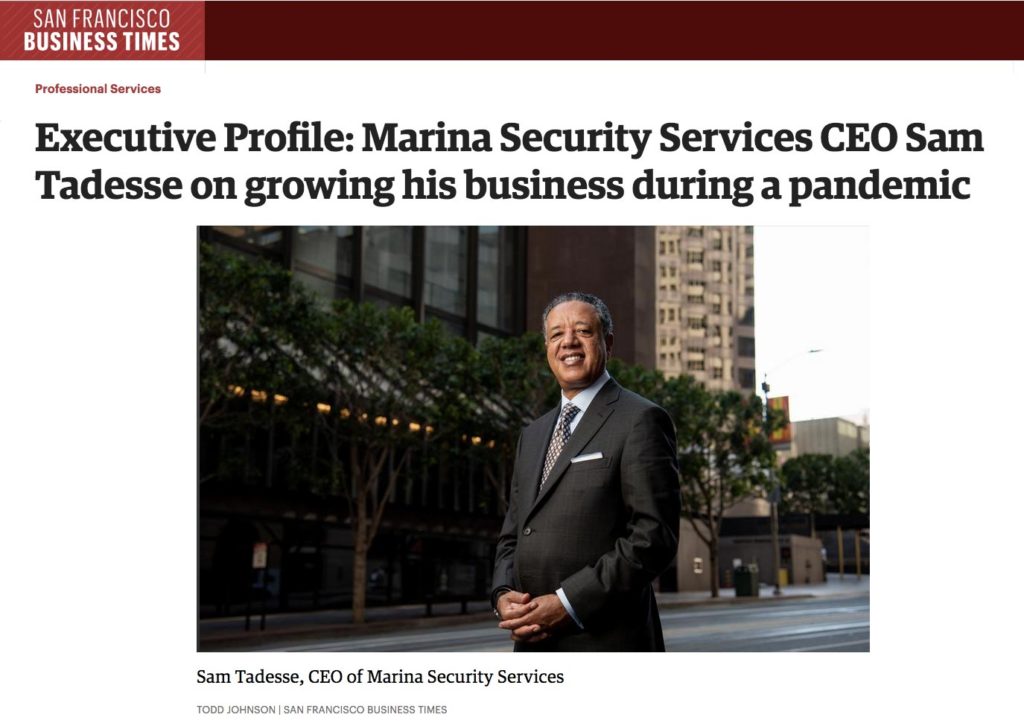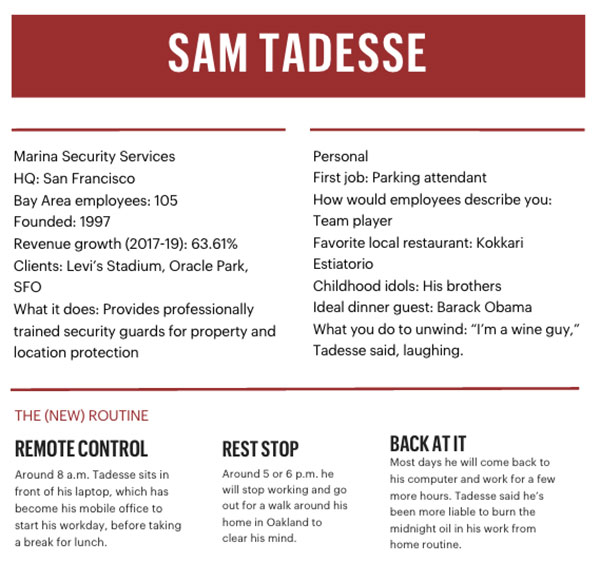As an immigrant to the United States who fled the military junta in his native country of Ethiopia, one of the first things Sam Tadesse saw in his adopted homeland was the gleaming facilities of SFO, particularly the host of parking garages that dotted the airport. Starting out as a parking attendant, Tadesse eventually worked his way up in the company to a general manager before the business was sold to a national parking company. That experience built in him the confidence to strike out on his own as an entrepreneur, starting Pacific Park Management in 1995 and Marina Security Services two years later. After selling his parking company in 2014, Tadesse has focused solely on Marina with the ambition to double the company’s business by the end of 2021. Looking back on his career Tadesse said “when you come to this country everyone has some kind of dream, but I have achieved more than I could have thought.”
What do you say sets your company apart when pitching clients? Mainly our locality. We’re a local company who can look after their interests. We’re not a national company where this is just another account. We pay attention to the people that we bring on board, the management team, and because of the knowledge we have in the area we can give better service for our clients here.
What do you think about how San Francisco supports small businesses? That depends how you look at it. I’ve done business with the city for 25 years now and there are different programs that are out there for minority-owned small businesses like us, as well as these local business enterprise classifications to partner or be a subcontractor to large firms. One of the biggest contracts we ever landed at my previous company was in the early 2000s at SFO, the employee parking facilities, which was set aside for disadvantaged business enterprises like us. This opportunity came from the city. Opportunities are not going to come to you or to your office. I understand some of smaller firms’ complaints and there are of course issues, but you have to be looking for opportunities out there too.
Where can the city improve on that? I think they have to do more outreach in educating the smaller firms, the local firms, the minority-owned firms. Also I think they have to do more of these set-aside contracts for smaller firms. They are out there, but it is not enough at all for small firms. When they put out the requests for proposals, the bigger firms take the opportunities left and right.
How has your business been affected by Covid-19? When this pandemic came and when I started getting some of the calls from the clients who were canceling their business, I was worried. But at the same time other new businesses have started coming onboard because they have protect their assets. So they have to have security services. During this pandemic I got more business than what I had lost. Security is generally not something that you can be able to stop and move on because you have assets and other interests that have to be protected.
Has there been a challenge from that influx of business? Getting employees has been very challenging, our overtime pay was going up because employees were not willing to come out and apply, especially with the unemployment benefits that were being offered. The challenge wasn’t in getting new business, it was in finding employees to fulfill the contracts we got.
How have you tried to approach that labor problem in an expensive city like San Francisco? That’s the biggest challenge that we have in our industry. We have shifted by educating our clients that you get what you pay for. We explain that by paying low wages, it would be very difficult for us to provide you a dependable employee. So what we do is we try to pay a little more than what our industry will pay by providing benefits, 401(k) and all that. And we list those benefits to our clients and tell them that this is what it will cost to retain our employees for a longer period of time and control turnover.
Does technology play a role in more efficiently using what manpower you have? From the time that they start, they use the technology to clock in and then after they clock in, then they have tablets to go around and write their daily reports. When they move around we have detection points that are on the tablets so we can be able to see their movements at that location. Then at the end of the day or when they finish their shifts, they will clock out. Clients get their invoices with all that background information provided electronically.
What advice would you give yourself at the beginning of your career? Always try to do things the right way, don’t try to use shortcuts, that will drag you down. Make sure you try and set things up the way you should with accountants and support from professionals. Also, try to always ask for advice from people from different industries to help expand your network.
What are your goals over the next year or two? Based on the growth we’ve seen given the shelter-in-place I have a very bold goal to double this business by the end of 2021.






